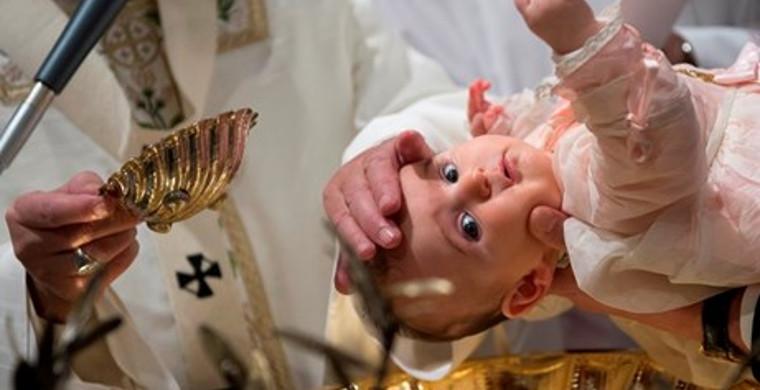Church of England is mainly Cradle Christians, report suggests
Church contains hardly any converts
Church Times Reporter
https://www.churchtimes.co.uk/
May 27, 2016
A Church of England congregation: research published this week suggests that in a group of 100 Anglicans from England and Wales, 93 will have been brought up as such, five will have started life in another Christian denomination, and only two would have belonged to no religion.
Only two per cent of Anglicans in England and Wales are converts, a new study suggests.
The director of the Benedict XVI Centre at St Mary's University, Twickenham, Dr Stephen Bullivant, has gathered statistics on religious affiliation from the annual British Social Attitudes surveys. His report, Contemporary Catholicism in England and Wales, launched on Tuesday in the House of Commons, deals mainly with the Roman Catholic Church, but looks at other denominations for comparisons.
His deduction is that, in a group of 100 Anglicans, 93 will have been brought up as such, five will have started life in another Christian denomination, and only two would have belonged to no religion. (The sample group was 1681 Anglicans.)
A group of 100 Roman Catholics would look similar: 92 cradle Catholics, six from another denomination, just one from another faith or with no religious background. (Percentages are rounded up, and so might not add up to 100.)
Taking 100 Methodists, 78 would be brought up in the denomination, 21 would have come from another denomination, and there would be just one non-Christian convert. Figures for the Baptist Church are 67, 31, and two respectively. (The low sample size for these denominations casts some doubt on the accuracy of these figures.)
The report also looks at levels of disaffiliation, and the increasing number of those who, brought up as Christians, now categorise themselves as belonging to no religion. For every one convert who enters the Church of England or the Church in Wales, 12 who were brought up as Anglicans leave. The proportions are similar for the Roman Catholics (1:10), better for the Methodists (1:7) and the Baptists (1:4).
Overall, 48.5 per cent of the population of England and Wales said that they did not belong to any particular religion; 44 per cent identified with some form of Christian denomination. The largest denomination is Anglican, at 20 per cent, down from 44.5 per cent in 1983. The second largest is an undifferentiated "Christian", selected by 12 per cent of the population. Roman Catholics were 8.3 per cent; non-Christian religions, 7.7 per cent.
The report suggests a wide regional variation. In the south-east, 25 per cent are Anglicans, and 48 per cent belong to no religion. In Wales, fewer than 14 per cent are Anglicans, while nearly 60 per cent belong to no religion. The most Christian regions are the south-west and the north-east. In London, one person in five belongs to a non-Christian religion. In the south-west, the figure is nearer one in 100.
Academics such as Grace Davie and Linda Woodhead have in the past counselled caution about the use of statistics based on self-identification. Sixty per cent of those in the Bullivant figures who say that they belong to the Anglican Church attend church "never or practically never", and a further 21 per cent say that they attend "at least once a year".
But the suggestion that the Churches in England and Wales are attracting almost no one from outside their own ranks is borne out in other studies. Interviewed in January 2014, after the publication of the research report From Anecdote to Evidence, Dr David Voas, a professor of population studies at the University of Essex, said: "A lot of people think of decline in terms of people stopping attending. The major factor underlying numerical change is that people never start attending in the first place" (News, 17 January 2014).














